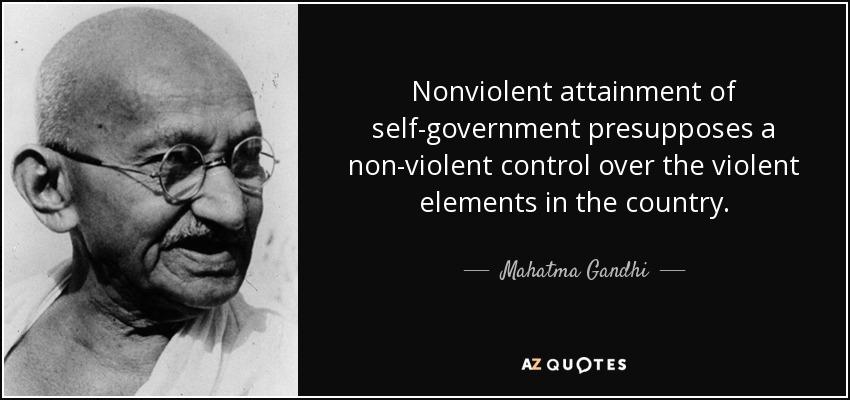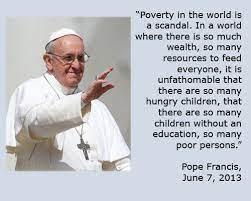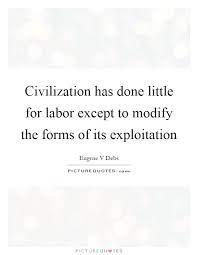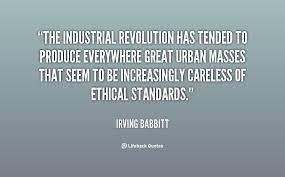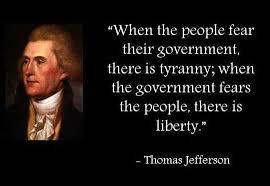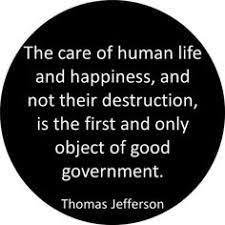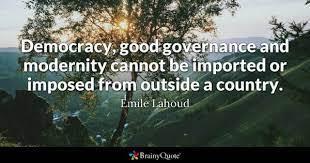Solomon's Column
The Need for Good Government
- By solomon2day
- On 31/01/2022
- Comments (0)
- In Solomon's Column
 Concerned citizens, who are desirous to sustain the democratic form of government must meticulously understand the policies of dictatorships.
Concerned citizens, who are desirous to sustain the democratic form of government must meticulously understand the policies of dictatorships.
In addition, the sections and clauses of the constitution obstructing good governance and the causes of social injustice must be removed.
Read-Legalizing Crime and Criminality
Towards achieving this, the citizens ought to have access to qualitative education that would aid sound judgment, and morally promote interest in and respect for fellow citizens.
Indeed, democracy is a system that is least liable to abuse, most capable of adaptation to new needs and most favorable to prosperity.
-Landlords and Tenants Associations, Crime and Criminality
Democracy does not deprive citizens of the use of their faculties, the relations between government and the people and between one citizen and another.
Citizens resolve their differences without resorting to violence in sane climes.
Furthermore, redundancy of spies becomes prominent and censorship is no longer the focus, when good government is in place.
-Law Enforcement: The Reactionary Approach -Government Workers-A Subject of Debate
Democracy in the Claws of Dictatorship
- By solomon2day
- On 17/01/2022
- Comments (0)
- In Solomon's Column
When the Government is desperate and resolute to cling to power, in the face of the unfavorable outcome of elections, election and the existence of political parties opposing the government do not constitute evidences of democracy.
Indeed, a number of countries have the forms of democracy, but the reality of dictatorship.
Without doubt there is a vital difference between democracy and dictatorship, however, it varies from one country to another.
Read-Legalizing Crime and Criminality
Notably, the Civil Service must be efficient and must render equally, good service without strings of partisanship, for the people to be reassured that they government they elected will carry out their wishes and at the same time fulfill promises made.
Read-Landlords and Tenants Associations, Crime and Criminality
Also rules and regulations exist to protect Civil Servants from the least suspicion of political bias;they are not allowed to present themselves for elective positions or partake in political activities. But unfortunately, this is not the case at all levels of government.
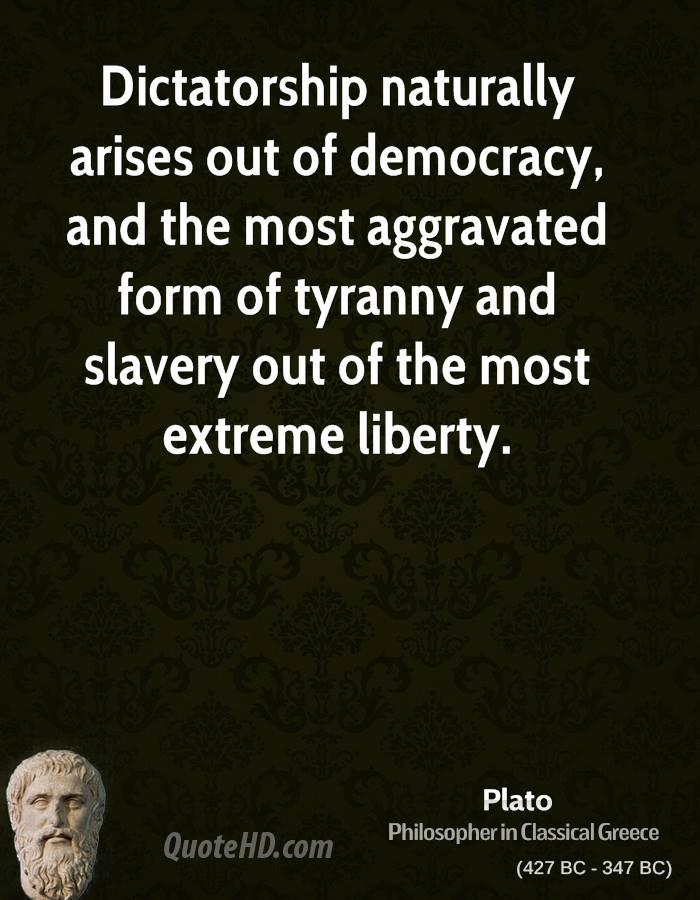 Read-Law Enforcement: The Reactionary Approach
Read-Law Enforcement: The Reactionary Approach
Obviously, one of the necessities of for good government include a non-party permanent Civil Service, comprised of people chosen for ability and not other considerations.
Interestingly, visionary and focused leaders always meditate on Gaius Julius Caesar. Caesar became a dictator in 49 B.C and same was conferred on him for life. Those close to him played important roles. However, in March 15, 44 B.C he was assassinated by those close to him, notably Marcus and Decimus,Brutus and C. Cassius.
The System of Government
- By solomon2day
- On 10/01/2022
- Comments (0)
- In Solomon's Column
 The system of Government that works without ways of obtaining advantages of living together even when there are great obstacles to unity is most suitable for the Federal Republic of Nigeria.
The system of Government that works without ways of obtaining advantages of living together even when there are great obstacles to unity is most suitable for the Federal Republic of Nigeria.
It is imperative that under such a system, the special loyalty of an individual to such an ethnic persuasion which may be in conflict with the loyalty to the State must be accommodated to provide for the goodwill of the citizen.
The economic structure and fortunes of the country to a great extent explain its politics presently. Read-Legalizing Crime and Criminality
In Nigeria today, there are distinct differences in language, religion, and ethnic persuasion as a result the form of government that is in place ought to redress the grievances of the aggrieved. But this is not so. Read-Landlords and Tenants Associations, Crime and Criminality
Political forms may not be classified in finality because forms change with time. Politics revolves around living men and changing habits and not with dead things.
In the light of this, therefore, may not be an accurate guide to the facts. Read-Law Enforcement: The Reactionary Approach
Note :
A reliable guide to the mindset of those in government is the body language of the people.
Crime and criminality dominate the public space mainly because Those-in-Charge is criminally minded. As schools resume, host communities, teachers, and school authorities should closely monitor the activities of pupils and students as criminals in uniforms increase on a daily basis.
Read-Government Workers-A Subject of Debate
The Necessity for Change
- By solomon2day
- On 04/01/2022
- Comments (0)
- In Solomon's Column
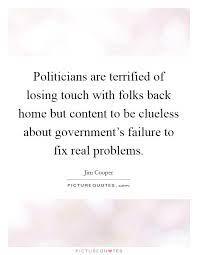 The function of a government goes beyond ensuring law and order, the arrangements to permit change must be functional. Change must revolve around consent and permission from the people.
The function of a government goes beyond ensuring law and order, the arrangements to permit change must be functional. Change must revolve around consent and permission from the people.
In several climes, the toleration of criticisms by governments attracted peaceful change and those who had visible potentials to partake in government are brought on board. But sadly, the fact that legislative chambers at the Federal and a number of states did not meet the minimum constitutionally stipulated sitting requirements in the outgone year is a great setback.
Indeed, there is no ideal government for all places and there is no ideal for all times.
The security situation across Nigeria, the attitude of security and law enforcement personnel, and government go beyond scratching the surface.
When Government does not change promptly with the situation, the people become a major part of the challenges confronting the government.
The experience of France at the end of the 18th century and Russia in the 20th century is instructive on the necessity for change.
Note
The docile nature of government officials, for pecuniary reasons, can be seen in the activities of an individual who sighted poultry at No. 2 Kehinde Aderibigbe Street, Olorunsogo, Molete, Ibadan, Oyo State, Nigeria(red gate).
Sighting poultry in a residential area constitutes a great danger to residents while the several numbers of doubtful characters who visit the poultry on a daily basis pose security threats for residents who still contend with crime and criminality.
Government must live up to its responsibilities.
Also read-Legalizing Crime and Criminality
-Landlords and Tenants Associations, Crime and Criminality
The People's Opinion
- By solomon2day
- On 16/12/2021
- Comments (0)
- In Solomon's Column
Government policies revolving around austerity measures, unemployment, stagnant salaries, rising prices of essentials, indiscriminate and multiple taxation among others are all reflections of the extent to which Those-in-Charge are now unpopular.
Several people unfriendly policies have successfully rubbished governance.
Sadly, officials of the administration have so far been unable to convincingly explain and defend the administration’s actions and policies that have brought about excruciating hardships on the people.
Regardless of the poor state of the economy, Those-in-Charge have continued to borrow and spend without recourse to saving.
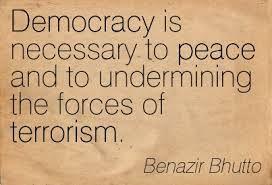
A bad democracy is not good merely because it is a democracy; and any form of government that is not a democracy is bad, for uncontrolled power invariably corrupts those who possess it.
They are not always right, but Those-in-Charge have sacrificed national interest as they see it in order to obtain a present political party advantage.
The imminent lose of political power by Those-in-Charge abounds in the opinion of the distraught, disillusioned and impoverished people.
Also read-Legalizing Crime and Criminality
-Landlords and Tenants Associations, Crime and Criminality
-Law Enforcement: The Reactionary Approach
-Government Workers-A Subject of Debate
Save Face
- By solomon2day
- On 29/11/2021
- Comments (0)
- In Solomon's Column
 The major discussion among Nigerians in every part of the country revolves around the hunger and poverty in the land.
The major discussion among Nigerians in every part of the country revolves around the hunger and poverty in the land.
The people continue to complain of the prohibitive cost of foodstuff in the markets, the absence of quality health care delivery, the high rate of unemployment, and the declining productivity of workers as a result of poor conditions of service.
Under the present situation, real income is very low due to low productivity.
The inducement to invest is also very low as a result of the low purchasing power of the people.
What has the government done to ameliorate the situation?
This question continues to linger.
Foreign investors have continued to observe the trend, which is obviously not favorable and decide against sinking their money in unsafe waters.
This in essence suggests that leadership at all levels of government now contend with ignorance, mediocrity, and the prominent lack of initiative to redeem the situation.
In this situation, lies, deceit, threats, and other covert methods become tools of governance to save face.
Also read- Legalizing Crime and Criminality
-Landlords and Tenants Associations, Crime and Criminality
Save Face
- By solomon2day
- On 29/11/2021
- Comments (0)
- In Solomon's Column
 The major discussion among Nigerians in every part of the country revolves around the hunger and poverty in the land.
The major discussion among Nigerians in every part of the country revolves around the hunger and poverty in the land.
The people continue to complain of the prohibitive cost of foodstuff in the markets, the absence of quality health care delivery, the high rate of unemployment, and the declining productivity of workers as a result of poor conditions of service.
Under the present situation, real income is very low due to low productivity.
The inducement to invest is also very low as a result of the low purchasing power of the people.
What has the government done to ameliorate the situation?
This question continues to linger.
Foreign investors have continued to observe the trend, which is obviously not favorable and decide against sinking their money in unsafe waters.
This in essence suggests that leadership at all levels of government now contend with ignorance, mediocrity, and the prominent lack of initiative to redeem the situation.
In this situation, lies, deceit, threats, and other covert methods become tools of governance to save face.
Also read- Legalizing Crime and Criminality
-Landlords and Tenants Associations, Crime and Criminality
Learning and its Challenges
- By solomon2day
- On 11/11/2021
- Comments (0)
- In Solomon's Column
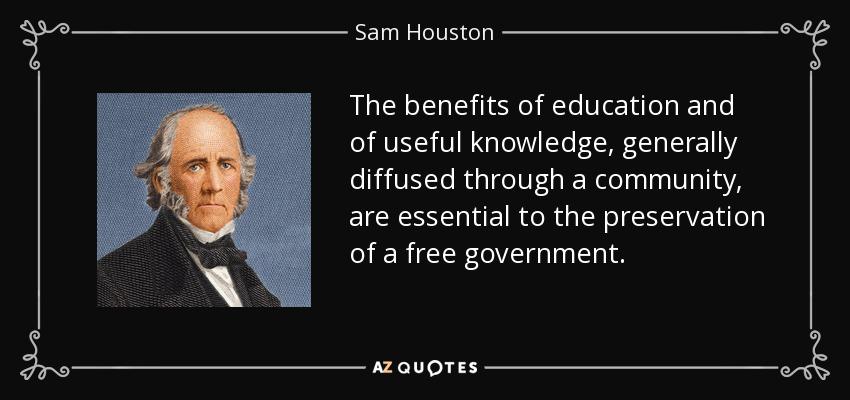 An official report in Great Britain in 1818 described the overall outcome of education of all sorts in this period as a'' lamentable deficiency'' in education for the poor.
An official report in Great Britain in 1818 described the overall outcome of education of all sorts in this period as a'' lamentable deficiency'' in education for the poor.
Even though the voluntary effort was restricted to the towns, the country districts constituted wells of ignorance.
It is to be noted that some districts in London had half of their population in the category of stark illiterates.
Sadly, this is the situation in most states in Nigeria today. The vice of ignorance is now a dangerous threat to public order.
The deliberate creation of the uneducated by the government at all levels is now the basis for misrule and poor governance.
Political reasons for the deteriorated standards of education are visible everywhere in the country, even as political concessions have overwhelmed educational opportunities.
The government discrimination at all levels, in public-owned educational institutions, has ensured that indigent children must be held responsible for their poverty, while the elite determines the happenings in the private-owned institutions with the aid of their wealth from known and unknown sources.
According to John Stuart Mill, ''Education provided by the public must be education for all, and to be education for all it must be purely secular education. '' This is, however, not the case in Nigeria.
Of great worry is the fact that the country is in urgent need of suitably qualified and efficient teachers.
Sadly, those available have, over time, displayed and exhibited little talent and questionable culture. Those in charge of quality assurance also fall within the range.
The vicissitudes and challenges of life in several cities and towns have coarse and degraded many sections of the population to the extent that manners and culture have deteriorated rapidly.
Indeed, most of the products of Primary, Secondary, and Tertiary levels of education are living examples to conclude that little or nothing was learned in these citadels of learning. This is disturbing.
Also read-Legalizing Crime and Criminality
-Landlords and Tenants Associations, Crime and Criminality
Helplessness in the Face of Dirt
- By solomon2day
- On 02/11/2021
- Comments (0)
- In Solomon's Column

In early Victorian Britain, health and cleanliness were visible challenges in the slums.
The outbreak of cholera in 1832 and 1837 prompted the Government to probe the causes of the fever.
In 1838, three medical experts-Dr. Southwood-Smith, Dr. Arnott, and Dr, Kay-submitted Reports anchored on the physical causes of Cholera fever in London. This included Dr. Southwood-Smith's worrisome account of the slums of Bethnal Green and White chapel.
Indeed, the above mentioned and others-the Report of the Health Towns Committee published in 1840 and the Report by the Poor LawCommission, authored by Edwin Chadwick and published in 1842-the Report on an Inquiry into the sanitary condition of the laboring population of Great Britain, in addition to the Royal Commission which also compiled Reports in 1844 and 1845 revealed that although Britain was blazing the trail in the world in industrial development, living conditions of its citizens were in a terrible and poor state, with typhoid fever wreaking havoc among the populace.
Interestingly, major cities and towns in Nigeria presently are very dirty and overcrowded, while estate developers ignore the rules and regulations guiding the erection of structures.
Several homes and shops are constructed in the smallest space with inferior materials and active connivance of government officials.
The dirty habits of the people and absence of facilities for environmental sanitation have converted these cities and towns to poisonous dens of filth and disease, where refuse habitations include streets, drainages, roads, and residential premises.
The poor state of septic tanks in homes, badly constructed drainages, lack of potable water, and poor environmental sanitation practices among the people have exposed the nonchalant population to various diseases including Cholera.
Of note is the fact that residents and occupants of No. 5 Kehinde Aderibigbes Street, Olorunsogo, Molete, Ibadan, Oyo State, Nigeria, not only vandalized the next building, No. 3 but also converted it to a refuse dump and place where excreta is also dumped.
Government officials have long before now admitted the evil, but blame their superiors for the public health situation.
Those-in Chrage at all levels of government look on helplessly as the people contend with the hazards of a dirty environment.
Also read-Legalizing Crime and Criminality
-Landlords and Tenants Associations, Crime and Criminality
-Law Enforcement: The Reactionary Approach
-Government Workers-A Subject of Debate
The Vigorous Pursuit of Profits
- By solomon2day
- On 18/10/2021
- Comments (0)
- In Solomon's Column
 In the 19th century in England, children and adults of both sexes were subjected to despicable factory labor.
In the 19th century in England, children and adults of both sexes were subjected to despicable factory labor.
Even though there were several factory-reform movements that led the agitations for an end to inhuman practices in the factories; the stubborn, unscrupulous, and grasping attitude of the factory owners, who were in their private lives often kind fathers and husbands, such as John Bright, resisted reforms in their factories and still engaged children of nine years old to work in these factories.
In the same vein in Nigeria today, the exploitation of labor, children inclusive is now very prominent.
Underaged children engaged by those in the Organized POrivate Sector(OPS) and government contractors are commonplace in a number of states, while these contractors minimize costs by going further to engage cheap labor and procure inferior materials.
However, in England, factories, workshops, and mines reforms became a reality after a long and painful struggle against the resistance of interested parties and the passive attitude of others.
Sadly in Nigeria, despite existing legislation on child labor and exploitation of labor, the ugly acts continue unabated due to the overbearing nature of interested parties who are beneficiaries of government patronage and stakeholders in the Organized Private Sector.
Indeed, the absence of those in the mold of John Doherty, Robert Owen, John Fielden, John Wood, G.S Bull, and Anthony Ashely in the Nigerian space today; has allowed for the continuation of the anti-labor practices. This is obviously in favor of the government and the OPS, since the emphasis is on the benefits and not the losses.
Unfortunately, the will of the Government at all levels to enforce regulations is almost non-existent and on the other hand slow in realizing its responsibilities.
Not surprisingly, a strange development that is fast becoming the norm in major cities and towns across Nigeria, is the increasing population of prostitutes, minors inclusive, in newly constructed hotels. This is in addition to the emerging generation of young criminals, who report daily to older men and women in these hotels.
Also read-Legalizing Crime and Criminality
-Landlords and Tenants Associations, Crime and Criminality
The Tax Burden
- By solomon2day
- On 10/10/2021
- Comments (0)
- In Solomon's Column
 Nigerians continue to groan as the strangulating grip of the tax regime at all levels of government tightens.
Nigerians continue to groan as the strangulating grip of the tax regime at all levels of government tightens.
The reason for the tax regime by Those-in-Charge is obvious-more revenue-even as Those-in-Charge has decided to take additional loans to finance projects that fall under the category of misplaced priorities.
However, during the Napoleonic wars, one of Those in Government in Britain, Pitt, resorted to an income tax to aid the defraying national expenditure. The burden of the war debt was humongous. £ 74,500,000 revenue was required annually to service the debt and other expenditures.
This was four times the pre-war budget, which resulted in the multiplication of taxes. During this period, government officials made excusable mistakes or were rather frankly ignorant. Indeed, smuggling and other sharp practices became prominent.
There were taxes on the import of manufactured goods and taxes on the export of raw materials. There were also various revenue taxes on consumption whose range and number had gone beyond the roof tops due to the pressure from the Napoleonic wars.
The article of Sydney Smith in The Edinburgh Review in 1820, summed up the precarious situation confronting Nigerian presently: ''Taxes upon every article which enters into the mouth or covers the back, or is placed under the foot-taxes upon warmth, light, and locomotion-taxes on earth, and the waters under the earthy-on everything that comes from abroad or grown at home-taxes on the raw material-taxes on every fresh value that is added to it by the industry of man-taxes on the sauce which pampers man's appetite, and the drug that restores him to health.....''
Also read-Legalizing Crime and Criminality
-Landlords and Tenants Associations, Crime and Criminality
-Law Enforcement: The Reactionary Approach
-Government Workers-A Subject of Debate
Understanding Repression
- By solomon2day
- On 04/10/2021
- Comments (0)
- In Solomon's Column
 The bad harvest of 1792 in England, the grave discontent among the people, the high rate of unemployment, the prohibitive prices of food items, repression by the government among numerous other factors had adverse effects on its socio-economic and political development.
The bad harvest of 1792 in England, the grave discontent among the people, the high rate of unemployment, the prohibitive prices of food items, repression by the government among numerous other factors had adverse effects on its socio-economic and political development.
In Nigeria in 2021, insecurity, hunger, poverty, the high unemployment rate, violent crimes, incompetence, misplaced priorities, mediocrity, the beautification of lies and falsehood, the condemnable activities of state actors and their agents have visible prints in every part of the country for the people to see.
Indeed, the insinuation is that leadership at all levels has derailed.
The ignoble roles played by the likes of John Castle, Oliver, and George Edwards, all provocative agents of the government and spies, have further dented the image of the leadership and also eroded its credibility.
The actions of Pitt in the House of Commons and Grenville in the Lords resulted in the passage into law of the Seditious Meetings Bill and the Treasonable Practices Bill, re-echoed in both chambers of the National Assembly.
Unprovoked attacks by the government, with the aid of armed force upon unarmed people exercising their constitutional rights to meet together to make in a peaceful and dignified manner, rational demands in the name of justice, is already a policy of the government.
Nigeria has its own version of the ''waterloo'' massacre.
Restrictive laws have only succeeded in promoting disaffection and discontent in different parts of the country and the destination now is a departure from all principles of the constitution.
Those-in-Charge in the mold of Pitt, Eldon, Castle, and Sidmouth understand the language of repression best, while the disillusioned and impoverished citizenry watches helplessly.
However, the consolation for the people lies in the fact that the time is too short for the functionality of the various distractions lined up by the leadership to cover up its failures.
Also read-Legalizing Crime and Criminality
Landlords and Tenants Associations, Crime and Criminality
Law Enforcement: The Reactionary Approach
Government Workers-A Subject of Debate
The Mindset of Leaders and Economic Prosperity
- By solomon2day
- On 27/09/2021
- Comments (0)
- In Solomon's Column
 By the 18th century, iron and coal became examples of industries that were capitalist in peculiar ways.
By the 18th century, iron and coal became examples of industries that were capitalist in peculiar ways.
From inception both industries were capitalist inclined,since they required heavy expenditure for the actual process of production.
The labor force comprised of wage earners working for a master and were not owners of the forge, iron ore or coalmine.
Similarly, as early as the 17th century, a sizable number of comparatively small industries emerged namely,soap,brewing, glass and salt-making industries.
However, during this period the interest in agriculture was still very strong,with the handicraft men more prominent than the industrial or commercial capitalist.
Read-Legalizing Crime and Criminality
In the second half of the 18th century, the growth of the population prompting the increase in the demand for goods, improved transportation system, unprecedented mechanical inventions, new materials and improved chemical processes resulted in the industrial revolution.
Industries such as coal and hardware made use of increased quantities of coal, just as coal was also used as fuel.
After the repeal of the General Export Duty in 1834, coal and iron became foremost in the export market.
Read-Landlords and Tenants Associations, Crime and Criminality
Birmingham, Sheffield and Glasgow known for cotton experienced economic growth between 1821 and 1831.
Sadly,in Nigeria today, despite the presence of all the factors that prompted the industrial revolution in Britain and the large deposits of coal,iron ore and several other mineral resources in different parts of the country, Nigeria is still largely import dependent for most of its needs. The poverty rate in Nigeria is now 50 per cent in 2021 as a result of misplaced priorities, mediocrity and incompetence.
Read-Law Enforcement: The Reactionary Approach
Indeed,the colored race are the major investors in biscuits,sweets,detergents and furniture.
Exploitation of labor, austere wages, poor working conditions and other sharp practices, have all contributed to the survival of these investors.
Interestingly,the distribution of soft drinks produced in plastics, questionable alcoholic drinks in sachets among others are now the choice of business inclined Nigerians.
Those-in-Charge are now tinkering with the idea of vigorously promoting activities in the agricultural sector, despite years of neglect and in the middle of unabating killings(for ritual purposes inclusive), kidnappings and other forms of violence in 2021,while Britain ceased to be primarily agricultural in the second half of the 18th century.
The consensus among focused and development inclined leaders,is that the mindset of those that formulated policies to a great extent determines the economic fortunes and prosperity of countries of the world.
Read-Government Workers-A Subject of Debate
The Obsession to Conquer
- By solomon2day
- On 23/08/2021
- Comments (0)
- In Solomon's Column
 The Norman conquest of England in 1066-1154 was characterized by the migration of whole peoples who displaced the earlier inhabitants of the land by expulsion or extermination.
The Norman conquest of England in 1066-1154 was characterized by the migration of whole peoples who displaced the earlier inhabitants of the land by expulsion or extermination.
However, Duke Williams'victory at the Hastings brought about the imposition of a few alien governing classes on the Anglo-Saxon population.
In addition, the Conqueror played the role of the lawful successor of Edward the Confessor, even though he was not.
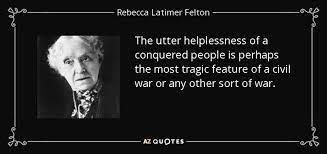 Interestingly, the Norman Kings who had very few followers, residing among the conquered population went the extra mile to protect them.
Interestingly, the Norman Kings who had very few followers, residing among the conquered population went the extra mile to protect them.
This was why William the Conqueror introduced a legal system of communal responsibility for the crime to favor the Norman.
Happenings in Nigeria today, have semblance with the Norman period.
Illiteracy, ignorance, hunger, poverty, and insecurity have over time emerged as tools of governance by successive leadership in Nigeria, since independence.
Indeed, the behavior, choice of words, mode of dressing, hairdo of an unspecified number of Nigerians are very good reference points of the quality of leadership at all levels s of government in the country. Of worry, is the glaring erosion of norms and values.
The insinuation is that a sizable number of citizens have been conquered by their leaders consciously or unconsciously.
This has opened the way for mediocrity, injustice, nepotism, mutual suspicion, and inequality.
Sadly, the obsession to conquer by a few has adversely and negatively affected the social, political, and economic development of the country to the detriment of the majority.
Also read-Legalizing Crime and Criminality
Empowerment : The Bigger Role of State Actors.
- By solomon2day
- On 15/06/2021
- Comments (0)
- In Solomon's Column
 The Public and Private Partnership trend adopted by state actors at both the State and Federal levels have sadly attracted investment in non-productive sectors: dubious estate developers, land grabbers, betting companies, hotels, petrol stations, and religious groupings with government-friendly posture and the productive sector: plastic soft drinks, sachet alcoholic stimulants, and enhancers.
The Public and Private Partnership trend adopted by state actors at both the State and Federal levels have sadly attracted investment in non-productive sectors: dubious estate developers, land grabbers, betting companies, hotels, petrol stations, and religious groupings with government-friendly posture and the productive sector: plastic soft drinks, sachet alcoholic stimulants, and enhancers.
The policy is yet to attract internal and external investment to the productive sector,-the creation of employment and influencing economic activities upwardly.Transfer Money with Wise
In a number of states the private sector, embarrassingly weak, while in others it is dominated by the controllers of the exploitative tendencies.
Most of these states have already achieved the status of dumping ground for HIV/AIDS drugs including the ones that have been outlawed by the World Health Organization. The number of casualties remains unreported.

Indeed, prostitution, sodomy, and homosexuality among other sexual perversions are now industries in major cities. Pickpocketing is also an industry.
PPP is now synonymous with the total abandonment of the economic welfare of the people as a legitimate function of state actors.
Petty traders who have opened shops in available spaces including residential areas have assumed the status of investors.
Indeed, politics to the people is group action, but when an individual starts to play a bigger role in a political party, then all is not well.
Interestingly, the empowerment of friends of state actors, cronies, proxies, and well-wishers, has dashed the hopes of the people to get a fair opportunity to participate in various empowerment schemes.
Debts : A Relapse to the Past
- By solomon2day
- On 07/06/2021
- Comments (0)
- In Solomon's Column
 The impression everywhere is that State Governors and Chairmen of Local Governments, who are entitled to borrow under the Debt Management Act, shall abide by the provisions of the Act and exhibit a high sense of responsibility in managing borrowed funds.
The impression everywhere is that State Governors and Chairmen of Local Governments, who are entitled to borrow under the Debt Management Act, shall abide by the provisions of the Act and exhibit a high sense of responsibility in managing borrowed funds.
Indeed, the ongoing debate among Nigerians is the sustainability of the debts at all levels of governance, since the country has only a single economy.
The Act seeks to ensure prudence in the management and utilization of borrowed funds, while simultaneously plugging in several measures that shall guarantee transparency in debt management at all levels.Transfer Money with Wise
Considering the worrisome debt profile of the country, the major concern now is how the loans are being utilized.
Without a doubt, indicators suggest that Nigeria has relapsed to the experience of 1978 and 1990, the period of excessive external debts.
Nigerians are already expressing fears that Those-in-Charge may have taken the country back to the past when it could not pay or service its loans.
It is a fact that no state can borrow externally unless the Federal Government borrows from them and turns it to them via a supplementary agreement, as stipulated by the constitution, that no state can borrow on its own externally.
Although the states' domestic debts are shrouded in mystery, the resolve of law enforcement and security agencies not to protect criminals any longer shall go a long way in checkmating the unabating insecurity nationwide.
Not long ago Those-in-Charge stated that the South West Geo-Political zone is the most peaceful, perhaps, but the insinuation is that it could be a covert directive. Days after, the unexpected occurred in a community in Oyo state.
Sadly, the reactionary and snail-speed approach to governance in certain states is already suggesting a veritable means to an end.
May 29: The Grumbling Grows Louder
- By solomon2day
- On 17/05/2021
- Comments (0)
- In Solomon's Column
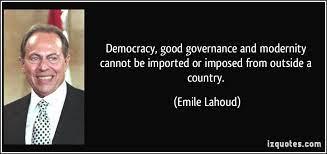 By May 29, 2021, the number of Those-in-Charge at both the Federal and State levels of Government shall be six years on the saddle, while others shall clock two years in their seats.
By May 29, 2021, the number of Those-in-Charge at both the Federal and State levels of Government shall be six years on the saddle, while others shall clock two years in their seats.
Interestingly, it is evident that the ruling class is yet to take positive steps to build a country hinged on equity, justice, and the fear of God.
Indeed, common sights in major cities in Nigeria include students, pupils, and those in the out-of-school category, hawking ''pure water'', kerosene, pepper/tomatoes, soap/detergents, and several other edibles, while the song on the mouths of everyone is titled,'' future leaders''.
The places to impart knowledge-Primary, Secondary, and Tertiary-are now breeding grounds for cultists, armed robbers, rapists, ritualists among others in the school uniforms for those in the Primary and Secondary schools.
The limitless strength of the devalued Naira has ensured that cronies of the government at all levels control the decision-making bodies of most trade unions in a bid to allow their paymasters to have their ways.
Not surprisingly, the singular factor that counts, presently, in the country's political culture is CASH.
The individuals who are opportune to have it in abundance treat others in the population with total contempt.
Those in-Charge, long before now spend their entire tenures, seeking to control the government and the political party structure, forgetting that the political party is not for a single individual.
However, the trend is for the party executive to run to a single individual whenever money is needed to run the party secretariat.
The implication that the dispensing point has the party in his pocket while the majority of the party members remain aggrieved and now grumble loudly for people to hear.
In Oyo State, Nigerians are not surprised that there are visible perforations of the walls of the St. Annes School fence that separates the Girls' school from the Olorunsogo, Molete community, and unregulated entry into the school through the perforations since Those-in-Charge prefer the reactionary approach to governance.
Similarly, hoodlums in the community have converted an abandoned building on the same street as the Redeemed Christian Church of God(RCCG) Potters House to a launchpad for crime and criminality, in connivance with the residents particularly those who reside in No. 5 and 8 Kehinde Aderibigbe street.
A Safe Haven
- By solomon2day
- On 03/05/2021
- Comments (0)
- In Solomon's Column
 It is stale news that a considerable number of companies have divested from Nigeria.
It is stale news that a considerable number of companies have divested from Nigeria.
Their relocation revolved around challenges of energy, infrastructure, and insecurity which has rendered business operations in the country prostate.
It is regrettable that Those-in-Charge has woefully failed to retain the confidence of investors by sustaining crucial industry support requirements viz electricity, good roads, and security.
Interestingly while the multinationals and a number of indigenous companies have taken refuge in Ghana and other countries, the Chinese, Indians, Lebanese, and Koreans have filled the gap and taken a firm grip of the economy. This set of investors have a reputation for exploitation, casualization, and the payment of stipends as wages to helpless workers.
In a number of instances, the workers are subjected to long hours of work without leave or holidays. Sadly, Those-in Charge has endorsed the country as a safe haven for this particular set of investors, who have over the years undermined the efforts of the law enforcement and security agencies.
It is not surprising the Debt Management Office(DMO) has disclosed that Nigeria is indebted to China to the tune of $3.7 Billion.
Curiously, the ambition and other selfish reasons of some helmsmen in the states which has almost brought Nigeria to its knees are the major stimuli for their intentions to conduct Local Government elections in these perilous times.
The Negative Influences
- By solomon2day
- On 26/04/2021
- Comments (0)
- In Solomon's Column
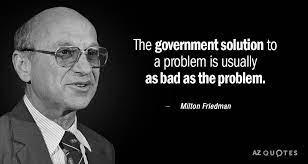 Human development is a major prerequisite for national development.
Human development is a major prerequisite for national development.
However, the Federal, State and Local Governments have been lackadaisical in ensuring the development of the appropriate manpower that ought to impact positively on the country.
Young boys and girls, who are, of course, students of Primary and Secondary schools in different parts of the country, are a reflection of the rotten state of the education sector in Nigeria.
Indecently dressed, disrespectful, rude, wayward, and equipped with obscene language, these children have continuously exhibited behavior and attitude that does not suggest that they have a future.
Of great concern, is the terrorism traits they also display, in addition to the taking of outlawed hard drugs such as Indian hemp.
Sadly, the parents of these children subtly encourage them to embrace criminality as a means to an end, since the affected parents had a similar upbringing.

Furthermore, teenage prostitutes soliciting for partons is commonplace everywhere, while the same applies to their male counterparts. Indeed, homosexuality has gained more ground in Nigeria.
Fathers and Mothers, who reside along Molusi, Solanke, Oyegbami, Oshodi, Scout Camp, and Felele communities among others in Ibadan, Oyo state, openly consent to their children's engagement in criminality. This explains the high number of hotels, beer parlors, and ''Ogogoro'' joints in these communities, which serve as solace to various categories of criminals such as kidnappers, armed robbers, ritualists, and car snatchers.
Of great worry, is the increasing population of illiterates among the young and the old alike, just as accusing fingers point to the leadership for aiding and abetting criminals in these times of insecurity, economic stagnation, deceit, and treachery.
Sadly, those in the category of Not-Too-Young-To-Run, who are fortunate to be elected or appointed into public offices at all levels of government have become negative influences to the Nigerian youth.
The Preservation of Treachery
- By solomon2day
- On 06/04/2021
- Comments (0)
- In Solomon's Column
 The only way to deal with the government at all levels is for the electorate to have the effective right to have performed below expectations.
The only way to deal with the government at all levels is for the electorate to have the effective right to have performed below expectations.
Nigeria is in dire need of highly intelligent lawmakers, who are self-willed and not unreliable political jobbers.
Indeed, the disheartening and unfortunate state of the nation is a good reflection of the incompetence of the leadership at all levels.
Of great worry is the fact that those who represent Nigerians alongside Those-in-Charge have failed woefully to meet their expectations, rather the exploitation of the people's long-suffering is now the trend.
In the last five years, the lawmakers have consistently ruined the lives of Nigerians, while the quality of life of the masses is yet to improve.
The lawmakers have been deliberately maneuvered, in a bid to erode the relevance of the opposition.
Those who pay the piper dictate the actions of those in the National and State Houses of Assembly.
Even though the leadership of the Legislature at all levels may mean well, the overbearing influence of the Executive is an imperative guide.
This is a dispensation of polluted governance, the emphasis is on money, not conscience.
Sadly, leadership is in the market for sale to the highest bidder.
Ignorance, mediocrity, and treachery are now some of the hallmarks of governance today, as exhibited by a number of Those-in-Charge, weeks ago inside the fortress, in an attempt to politically preserve their treacherous activities.

